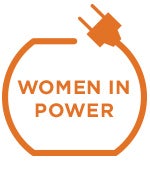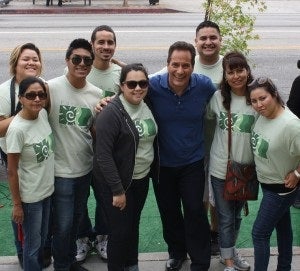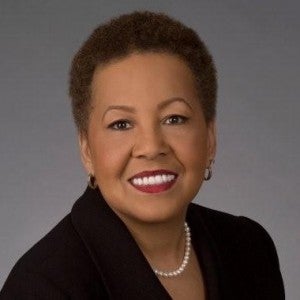 This is the third in a series of posts about leading women in the power, environmental science, advocacy, policy, and business sectors. To see previous installments, please use the ‘Search’ field in the left sidebar to search for ‘Women in Power.’
This is the third in a series of posts about leading women in the power, environmental science, advocacy, policy, and business sectors. To see previous installments, please use the ‘Search’ field in the left sidebar to search for ‘Women in Power.’
For many communities across the country that remain overburdened with pollution, the promise of clean energy and livable cities is far from fulfilled. From Los Angeles to Atlanta, people aspire to live in clean, vibrant environments where their children can grow up healthy and safe.
Women often play a unique role in grassroots organizing, and they gain followers by connecting people’s aspiration for a more thriving community with the vision for a low-carbon, sustainable economy.
I recently met two such activists who possess the passion, charisma, and savvy needed to make sure that their communities are not left out of the clean energy revolution. They work tirelessly to bring the benefits and opportunities of this rapidly growing economy to the places where they live.
Working for environmental justice in Los Angeles
Veronica Padilla, executive director of Pacoima Beautiful, has dedicated her career to the nexus between urban planning and environmental justice in the industrial suburbs of Los Angeles’s Northeast San Fernando Valley, one of the most polluted regions of the state.
Veronica’s journey as an advocate for her community began with a move across town to study at University of California-Los Angeles, where she quickly observed a significant decline in “graffiti and allergies.”
Through her studies and own personal experience, Veronica began to identify just how disproportionately her community was affected by pollution because of how industrial facilities had been sited – near homes and schools.
It was eye-opening, she notes, to see “the challenges facing my own community.” Consequently, she changed her plans from going to medical school to focusing on urban planning.
“I learned that you could be vocal about these issues, but that my community wasn’t as vocal as it could be,” she says.
Now, Veronica continues Pacoima Beautiful’s legacy of female leadership, working day in and day out to elevate the voice of her community for a healthier and more equitable Pacoima.
Demonstrating the power of partnerships, Pacoima Beautiful joined RePower LA and other groups to help the Los Angeles Department of Water and Power transition away from coal and lead the city into a clean, more efficient future. It will help people save money on energy bills and create local green jobs.
Mobilizing Atlanta’s African-American community
Across the country, Felicia Davis has also been an inspiration in the environmental and social justice movements for more than a decade. As the director of the Building Green Initiative at Clark Atlanta University, she has put Historically Black Colleges and Universities (HBCUs) firmly on the clean energy map.
“One day I saw that the United Negro College Fund and HBCUs were having a meeting on sustainability,” she recalls. “That sounded interesting to me so I just plopped myself down and started helping to plan, and basically created a job for myself.”
Felicia has long been a defender of the environment. As an organizer for the Southern Organizing Committee for Economic and Social Justice in Atlanta in the early 2000s, she mobilized the African-American community against air pollution and coal plant siting in the South.
“Climate change has real impacts,” she says. “I think I do as much as I can do to promote clean energy and ratchet down emissions. In the South, this is no small task.”
Historically black universities barely registered on the Princeton Review Guide to Green Colleges – not because they are not green, says Felicia, but because they don’t usually apply.
Working across 27 campuses to elevate their leadership in sustainability, Felicia and the Building Green Initiative created its own survey, proving that HCBUs can compete with the best of them.
More engagement by women brings change
Much of the joy Felicia derives from her work comes from increasing student engagement, where gender plays an important role.

A section of a Keep Pacoima Beautiful mural that pictures solar cells behind a bright light bulb that doubles as the sun.
“We’ve reached a time where, in the absence of some enormous creative and innovative talent, our nation is in a decline that it might not emerge from” she says.
“My hope is that women will bring something different to the table, and that something different that we bring will be awakened and unleashed. It not just about equality, it’s that women are needed.”
Both Felicia and Veronica believe that feminine thinking brings a new kind of creativity that’s critical in public policies today.
For women who may think they don’t have what it takes, Felicia offers this piece of advice for women entering the clean energy field:
“Fearlessness means you’re not worried about failing,” she says. “Eventually we have to step off the edge and know that…we’ll appreciate you, catch you, and applaud you.”
This commentary originally appeared on our EDF Voices blog.











